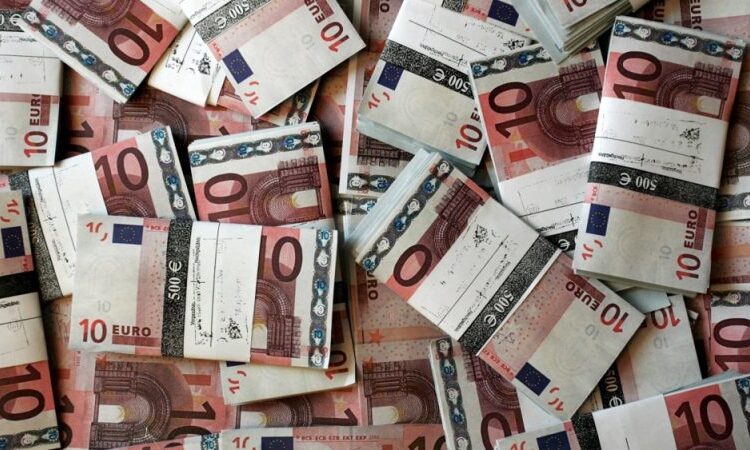
The latest compromise proposal on the EU’s seven-year budget review, which comes with large cuts and re-purposing of funds, has so far failed to convince member states, with time running out one week before a decisive EU summit.
The latest EU budget ‘negotiation box’ drafted by the Spanish EU Council presidency and shared with EU ambassadors on Wednesday (6 December), shows commitment from the member states to limit the EU budget’s increase to a minimum while safeguarding financial aid to Ukraine.
The draft compromise text, seen by Euractiv, is the last one in a series of documents put forward in recent months to try and close the deal on the review of the European budget in time for the European Council on 14-15 December.
At their last EU summit, several leaders – including Belgium, Germany and other fiscally ‘frugal’ countries – spoke against the Commission’s proposal, asking Brussels to re-purpose funds and unused money.
“At the same time, national budgets are struggling to address the cost-of-living crisis,” reads a Swedish non-paper seen by Euractiv.
The European Commission tabled in June a €98.8 billion package, including €66 billion in fresh money to increase the initial seven-year budget, whose flexibility it says was exhausted by crises, such as support to Ukraine, and the COVID pandemic, and cannot face another four years at this rate.
It includes a €50 billion lifeline to Ukraine to help keep the war-torn country’s economy afloat.
The draft discussed by ambassadors on Wednesday proposed a €73.6 billion increase to the overall budget, cutting the Commission’s proposal by €25.2 billion, and decreasing additional national contributions.
An earlier memo seen by Euractiv, dated 2 December, tabled an €84 billion increase.
The Ukraine Facility would be preserved, as EU envoys to Brussels have looked at securing it as a priority, despite Budapest’s opposition.
The rest of the ideas focus mainly on re-deploying money from the current budget to the new priorities and limiting the use of fresh money to a few projects. It is the case for Ukraine, and military mobility, for which the Commission did not propose an increase. Civil protection in case of natural disasters is however cut by €1 billion.
Migration-related programmes, supported by the first-arrival countries in southern Europe, receive both fresh money from the member states and cohesion funds for regional development and agriculture.
Re-purposing the budget from the cohesion funds is largely supported by Germany. To work without penalising the poorest and most migration-impacted countries in the bloc and to ensure solidarity in the migration of management flux, the Commission would have to propose a framework.
“In this sense, the European Council invites the Commission to assist countries to exploit this possibility. Moreover, the European Council invites the Commission to explore further flexibilities for these purposes [ie. migration],” the refused draft negotiation box states.
Budget Commissioner Johannes Hahn called the idea to reallocate funds “politically unrealistic” in an interview with reporters, including Euractiv.
The STEP fund (Strategic Technologies for Europe Platform) worth €10 billion, defended by France, would go down to €2.5 billion and use redeployments from the Brexit Adjustment Reserve and the cohesion funds, and using the €93 billion unused loans from the pandemic recovery fund, according to the latest budget proposal.
It also cuts increases in the Commission’s administration expenses, the innovation council under Horizon Europe, while the status of the Innovation Fund is unclear.
Ukraine vs Hungary
While the large majority of the EU countries agree on the deal for Ukraine, Budapest has raised its voice against the proposal, urging the Council to split the package in two, with a discussion on the EU’s budget increase on one side and Ukraine’s needs on the other.
“We are open to discussing a dedicated budget or fund for Ukraine”, Zoltan Kovacs, Hungary’s secretary of state for international communication, told reporters this week.
Against that backdrop “we have to secure Ukraine”, one EU diplomat said, worried that the whole package would fall through and pointing to a possible deal of EU26.
Hahn said that if Hungary’s Prime Minister Viktor Orban – and to a certain extent his Slovak counterpart Robert Fico – plans to hamper the agreement on Ukraine’s package, such a Plan B could be considered.
He insisted, however, that “some member states also said that [agreeing on] Ukraine only is not acceptable”.
Wednesday’s box proposed again to use Russian frozen assets in the bloc to fund the support to Ukraine.
Despite resistance from certain EU countries, the refused draft reads that “Potential revenues for the Union budget that could be generated under the relevant Union legal acts, concerning the use of extraordinary revenues held by private entities stemming directly from the immobilised Central Bank of Russia assets, will be externally assigned to the Ukraine Facility”, counting on €15 to €17 billion.
[Edited by Alexandra Brzozowski/Zoran Radosavljevic]







